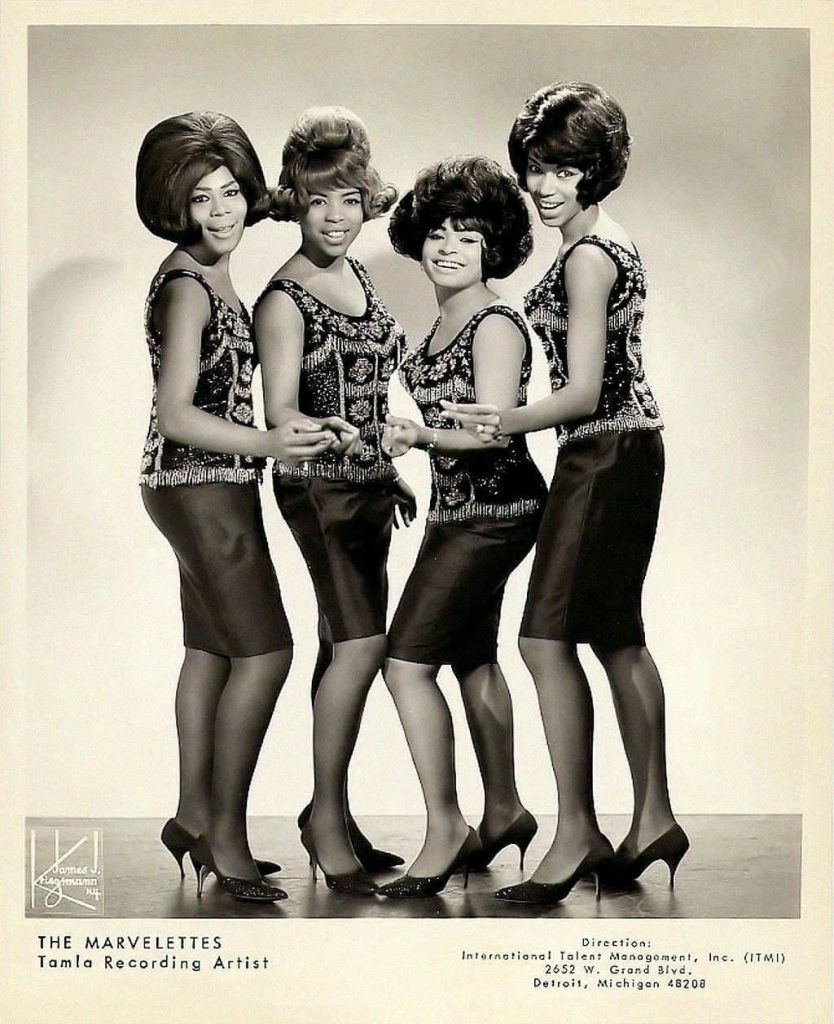
The Marvelettes – “Please Mr. Postman”: The First Motown Chart-Topper and a Timeless Pop Classic
The Marvelettes’ “Please Mr. Postman” is a groundbreaking track that blends youthful anticipation with the irresistible energy of early Motown. Released in 1961, the song became the first Motown single to reach No. 1 on the Billboard Hot 100, marking a milestone for the label and setting the stage for its dominance in the music industry. Written by Georgia Dobbins, William Garrett, Freddie Gorman, Brian Holland, and Robert Bateman, the song’s catchy melody, relatable theme, and infectious rhythm have made it a timeless classic that continues to resonate with listeners.
The song opens with a driving beat and a vocal plea that immediately grabs attention: “Wait! Oh yes, wait a minute, Mr. Postman!” This iconic opening sets the tone for a track filled with youthful energy and heartfelt emotion. The rhythm, driven by tambourine and snare drum, creates a danceable groove that perfectly captures the urgency and excitement of the lyrics.
Lyrically, “Please Mr. Postman” is a simple yet powerful expression of longing and anticipation. The narrator eagerly awaits a letter from their lover, and lines like “There must be some word today / From my boyfriend so far away” convey a universal sense of yearning and hope. The repetition of the plea, “Please, please Mr. Postman,” underscores the narrator’s desperation, making the song relatable to anyone who has ever waited anxiously for a message from a loved one.
The chorus, “Mr. Postman, look and see / Is there a letter, a letter for me?” is irresistibly catchy, with its rhythmic repetition and singable melody. It encapsulates the song’s theme of longing while also inviting the listener to sing along. The upbeat delivery of the chorus contrasts with the emotional weight of the lyrics, creating a dynamic tension that makes the track unforgettable.
The lead vocals by Gladys Horton are brimming with sincerity and youthful exuberance. Horton’s voice captures the mix of excitement and vulnerability that defines the song, making her performance both engaging and relatable. Her expressive delivery brings the lyrics to life, while the harmonies provided by the rest of The Marvelettes add richness and depth to the track.
The production, guided by Brian Holland and Robert Bateman, is quintessential early Motown, with a focus on rhythm and melody that ensures the song’s immediate impact. The use of piano, handclaps, and backing vocals creates a full, layered sound that feels both polished and organic. This balance of simplicity and sophistication became a hallmark of the Motown sound, and “Please Mr. Postman” exemplifies this approach perfectly.
Since its release, “Please Mr. Postman” has remained a cornerstone of pop and R&B music. Its themes of love and longing, coupled with its infectious rhythm, have made it a favorite for generations of listeners. The song has been covered by numerous artists, including The Beatles, who brought their own rock-and-roll spin to it in 1963, and The Carpenters, whose 1975 version also reached No. 1 on the Billboard Hot 100.
The cultural impact of “Please Mr. Postman” goes beyond its chart success. As the first Motown song to top the Billboard Hot 100, it paved the way for future hits from the label’s legendary roster, including The Supremes, Marvin Gaye, and The Temptations. Its success also highlighted the growing influence of African American artists in mainstream pop music, marking a significant moment in the evolution of American music.
In the end, “Please Mr. Postman” is more than just a catchy pop song—it’s a testament to the power of Motown to capture universal emotions and deliver them with irresistible energy. The Marvelettes’ heartfelt performance, combined with the song’s memorable melody and groundbreaking success, ensures its place as a timeless classic. For fans of Motown and lovers of great pop music, “Please Mr. Postman” remains a joyful and enduring piece of music history.